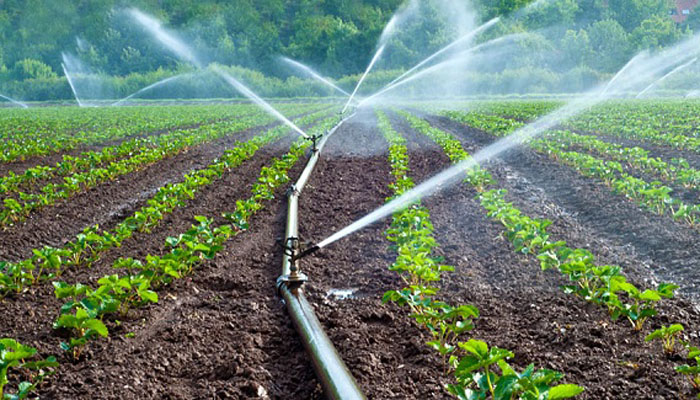
The Sunday Mail

Oliver Kazunga recently in CHISUMBANJE
More than 2 600 families in Chisumbanje have so far benefitted from small-scale irrigation projects being spearheaded by Zimbabwe’s largest ethanol producer, Green Fuel.
The small-scale irrigation initiative by the agro-processing firm began in 2019.
Since 2012, it has invested close to US$200 million into the ethanol project.
Apart from small-scale irrigation projects, where 1 300 hectares have so far been parcelled out with each beneficiary allocated 0,5ha, the company has also established a sewing workshop, community library with computers and recreational facilities that include a soccer pitch with state-of-the-art facilities.
Crops such as maize and beans were dominant in most of the irrigable land.
Farmers also grow horticultural crops such as tomatoes, onions, butternuts and vegetables that are produced for subsistence and commercial purposes.
Beneficiaries of the small-scale irrigation projects said they have helped improve their living standards and promote food and nutrition security.
“The allocation of these 0,5ha by Green Fuel has been quite significant to us as beneficiaries of the scheme as we are now able to grow different crops throughout the year, and this is improving our food security as families,” said Mrs Gertrude Ndlovu.
“In the past, we relied largely on dryland cropping and the yield was low due to poor rainfall. But now we are able to do crop rotation all year round.”
During the current winter season, some of the farmers are harvesting sugarbeans planted in March.
Earlier in January and February, they had harvested maize.
Other income-generating projects such as beekeeping were also helping support farmers.
“We also wish that Green Fuel continues rolling out such projects so that our colleagues who are yet to benefit from the initiatives also benefit,” added Mrs Ndlovu.
Mrs Tongasi Sithole from Manyanga Village in Ward 26 said before she was allocated the 0,5ha piece of land under the small-scale irrigation project, she was growing cotton and maize under dryland.
“But during seasons when we experienced erratic rains, our yields were greatly affected. I was happy when we were allocated 0,5ha under the irrigation project because, for example, if l grow maize in a particular season, l am guaranteed of at least two tonnes, leaving me with sufficient food for the year while also selling some to earn money to pay school fees for my children,” she said.
Mrs Veronica Magwenzi similarly indicated she was guaranteed at least two tonnes of maize each year, sufficient to support her family.
“Our appeal now is for Green Fuel to avail more land to our fellow villagers yet to benefit from the initiative,” she said.
Farmers are being supported with start-up inputs, good agronomic practices and other technical services to improve yields. Mr Stephen Zinyani, who is a supervisor at one of the small-scale irrigation projects, said: “We want to thank our Government for facilitating this initiative where Green Fuel has released land under the irrigation scheme at no cost.
“We want to commend the Government and Green Fuel for the irrigation projects . . . because everyone now gets pre-occupied in the fields . . . This brings development within our communities.”
Speaking after touring sugarcane plantations and the ethanol plant recently, Energy and Power Development Minister Zhemu Soda commended the ethanol producer’s initiatives.
“We were told that about 1 300ha have been availed to the farmers and each is having a plot of half a hectare, meaning about 2 600 families have been catered for and what we saw there is some crop under drip irrigation. Obviously, it removes all the squabbles that might have happened,” he said.
Green Fuel managing director Mr Conrad Rautenbach said their corporate social responsibility programme was key to their operations.
“That is very important for us and our biggest one is the small-scale irrigation project where farmers (villagers) get 10 percent of all the land that we develop for the community.
“So, we are doing 1 000ha this year, then 10 percent (100ha) will go to the community, and that’s fully developed (all the land preparation is done, irrigation for water supply and electricity are supplied).
“That is a big important one for us because this region is Region 5. It’s very dry so there is no way you can grow crops without irrigation,” he said.
Last year, the company developed an additional 900ha from which 10 percent was allocated to the Chisumbanje community.
The ethanol producer has 12 000ha under sugarcane each year.
It is also expanding plantations to boost ethanol output, which presently ranges between 380 000 and 400 000 litres a day.
Zimbabwe’s petrol blending ratio stands at 15 percent and about 300 000 litres of ethanol are required per day under the current blending levels.
Government intends to increase the blending level to 20 percent to reduce the fuel import bill, especially at a time when global fuel prices are volatile.



